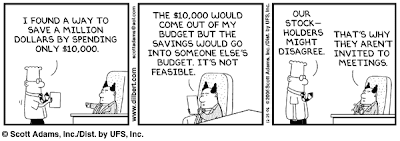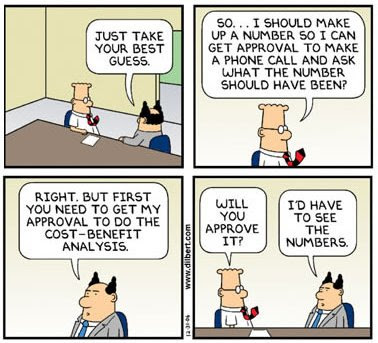
Well, lots of things...
- It takes away a lot of management time
- Expensive: Ford Motor Company spent $1.2 billion annually on its budgeting process
- A survey showed that budgeting consumed between 20-30 % of senior executives' time
- A Stanford professor says that a few companies avail themselves of the data collected during the budgeting process to actually understand their business models and what actually drives success

- May drive unproductive behaviour. How? Evaluation & payouts to senior executives are based on whether the budgets are met/exceeded. Hence, they have every incentive to set targets that they can meet or, even better, exceed, while the boards will try to set ambitious goals... So whats the end result? The process rewards forecasting ability, and also the ability to negotiate with one's bosses
- Zero based budgeting is more of a myth. Everybody focuses on what the company achieved last year...
- Too much focus on the budget target: There is an example of a company not spending money fearing that they will miss the budget target...
- Another problem is that the budgetary targets is that its based on forecasting ability and negotiation. Its possible to hit the targets while losing market share, falling behind technologically, and even going broke


The obvious solution is to use budgets as rough guidelines for planning & forecasting, but to base assessments of executives, depts, and companies on indicators that more fully capture relative performance vis-a-vis external competitors.... is it growing faster, is it gaining or losing market share, is it out-performing its competiton in bringing new products & services to the market? Is it attracting & retaining customers & employees
The absence of rigid budget adherence is not the same as financial anarchy! Instead of spending too much time in meetings where people weigh past performance against budgetary goals, it can be more productive to focus on recent product and customer successes & failures, whats been learnt, & how the company can do things to be more productive/effective in the future...
Adapted from 'What were they thinking? Unconventional wisdom' written by Dr. Jeffrey Pfeffer




No comments:
Post a Comment